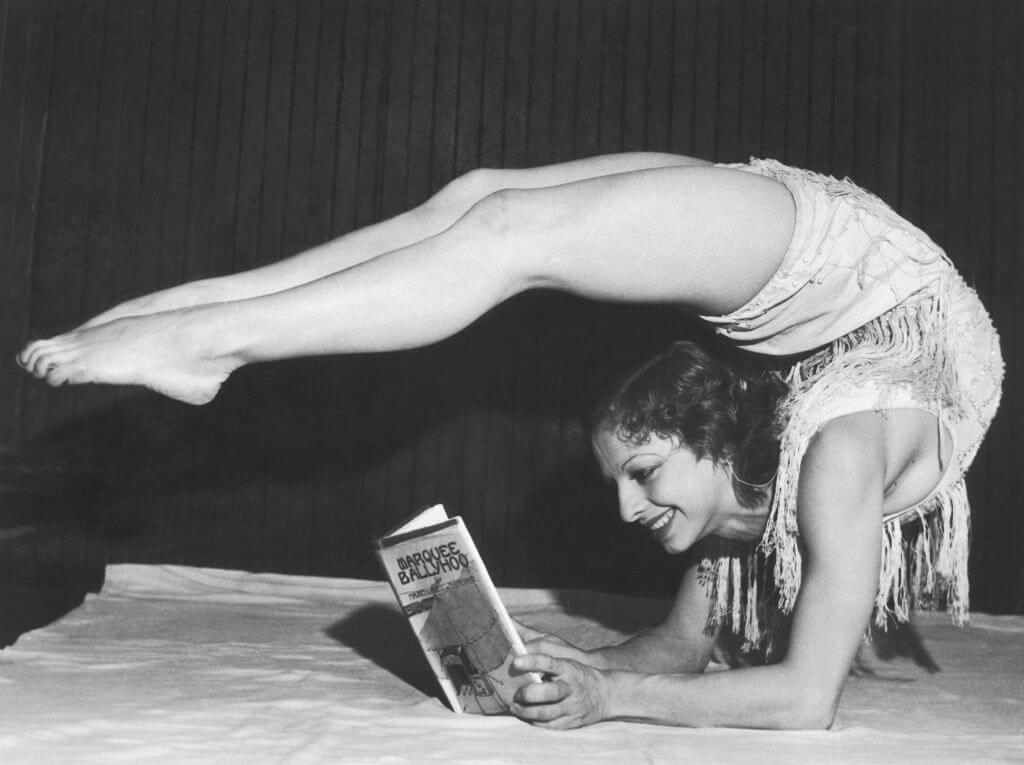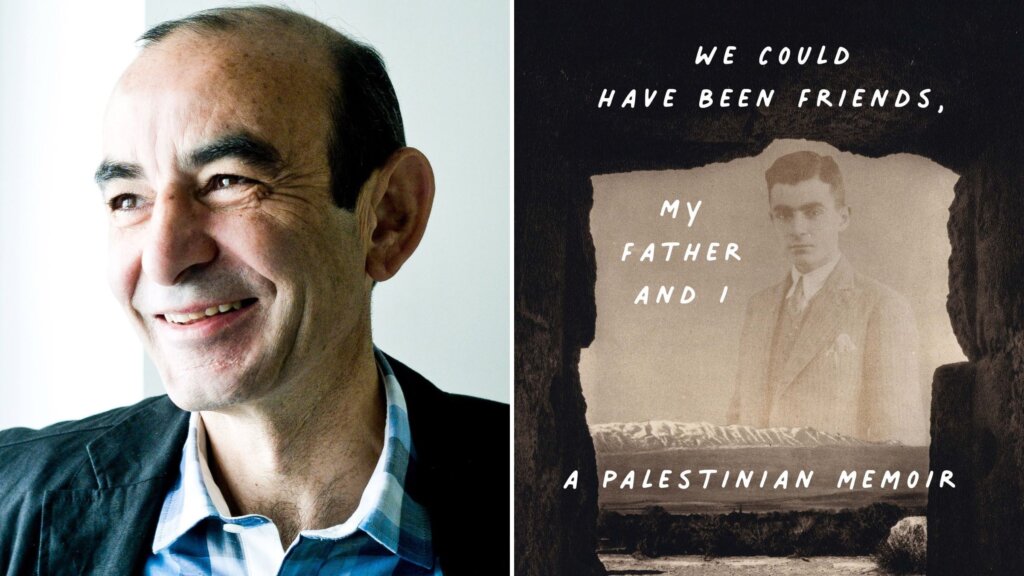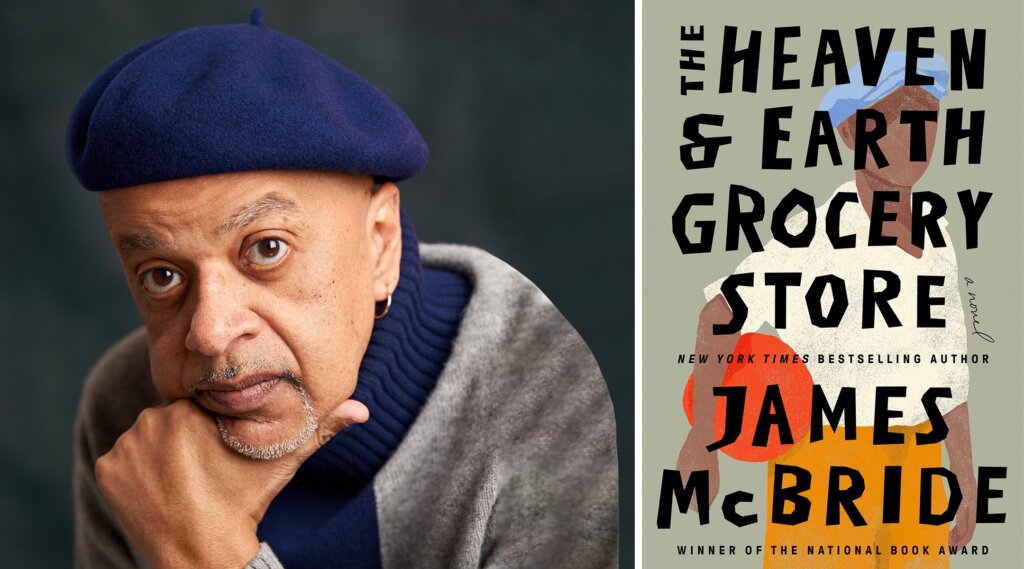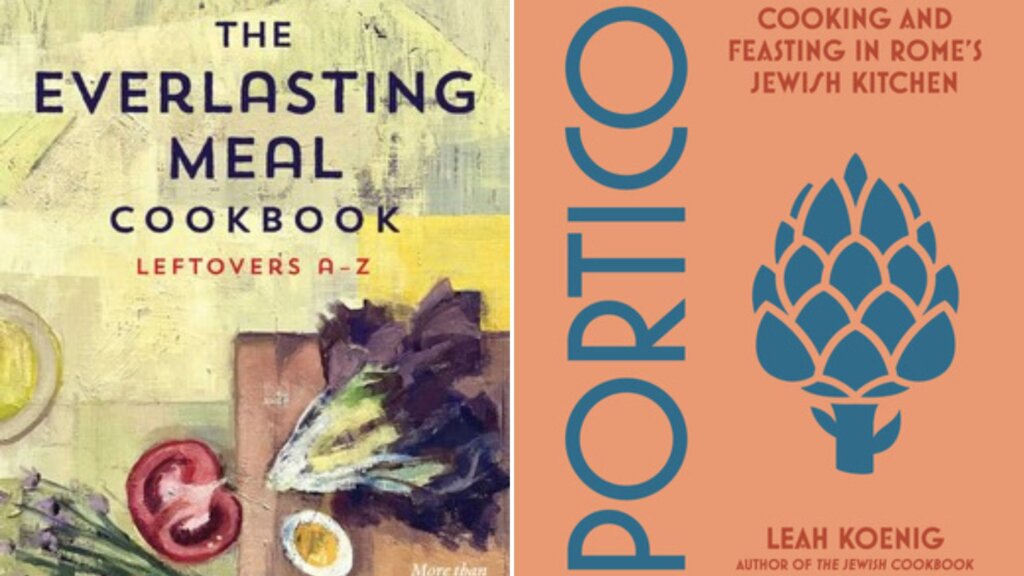
We rounded up our favorite Jewish (and Jewish-adjacent) books of 2023. Photo by Getty Images
If you thought books belonged in reviews, on shelves and nowhere else, 2023 should have changed your mind — because literature is at the heart of so many stories this year.
With a nationwide surge in book bans, libraries became a flashpoint in the debate over how best to teach (or obscure) American history. Prominent authors protested the use of their work to train artificial intelligence. People turned to Israeli writers to make sense of Hamas’ Oct. 7 terror attack, while Palestinian poets have conveyed the massive human toll of Israel’s invasion of Gaza. Canceled book events associated with Palestinian writers and activists have forced Americans to decide what free speech and censorship really mean.
And at the same time, writers kept publishing, and we kept reading. Below are some of our favorite Jewish and Jewish-adjacent books — a mix of fiction and memoir, reporting and illustration, cookbooks and kids’ books, stories illuminating long-ago eras and our own fraught moment. Grab one (or several) before you say goodbye to 2023.
By and about Israelis and Palestinians
We Could Have Been Friends, My Father and I: A Palestinian Memoir, by Raja Shehadeh
Raja Shehadeh and his father Aziz, leading Palestinian lawyers of their respective generations, both devoted their careers to challenging the Israeli government’s actions through the law. Despite sharing goals, and at times even an office, the two men maintained an emotionally distant relationship, unable to appreciate each other’s professional successes or political commitments. That disconnect is the subject of the younger Shehadeh’s National Book Award- finalist memoir, in which the author explores how a lifetime of exile and instability shaped his father’s career and their complicated bond.
A Day in the Life of Abed Salama, by Nathan Thrall
This intimately reported account of daily life in the occupied West Bank begins on a rainy 2012 morning, when a school bus crash on a highway outside Jerusalem killed six Palestinian children and one teacher. One of the victims was the titular Abed Salama’s 5-year-old son, Milad. As Thrall recounts Salama’s day-long journey across checkpoints and walls to find his son, he also tells the broader story of the occupation through extensive and intimate biographies of Salama and other parents, doctors and emergency workers who witnessed and responded to the crash.

Enter Ghost, by Isabella Hammad
Sonia, the British-Palestinian protagonist of Isabella Hammad’s second novel, is visiting her family’s home city of Haifa for the first time in years when a family friend convinces her to take part in a West Bank production of Hamlet. (Thus, the title.) The challenge of theater-making under occupation forces Sonia to confront her own ghosts, from her father’s participation in a militant resistance movement to the way her sister’s political commitments differ from her own.
Land of Hope and Fear, by Isabel Kershner
Published at the height of Israel’s protests against the judicial overhaul proposed by its right-wing government, Kershner’s second book probes the fault lines in Israeli society by profiling members of the country’s various communities: a jaded kibbutznik, a champion of the settlement movement, an Ethiopian refugee, a Palestinian citizen of Israel cataloging history through his art gallery. Though Kershner never puts these disparate, often conflicting narratives in dialogue, outsiders can still benefit from this mosaic portrait.
Fiction
The Heaven and Earth Grocery Store, by James McBride
Critics dubbed this decades-long saga about intertwined Black and Jewish communities in rural Pennsylvania the next “Great American Novel.” But McBride, who previously won the National Book Award for his novel The Good Lord Bird, demurred in an interview with the Forward: “I’m not that smart,” he told me. Peppered with wittily rendered spats between German and Romanian immigrants and truly obscure Yiddish slang (do you know what a fusgeyer is? I didn’t, either), the novel is a true immersion in Jewish life outside major population centers in New York. But in showing how minority communities band together to survive in an increasingly jingoistic society, McBride stays clear-eyed about America’s undemocratic past — and the consequences of refusing to understand it.
Hope, by Andrew Ridker
Andrew Ridker’s sophomore novel will make you feel like an archeologist of the Obama era. No cringe decor trend or performatively liberal dinner party game is spared in this send-up of a seemingly perfect Boston Jewish family as it unravels over the course of a year. But if Ridker is ruthless in his dissection of social convention, he’s generous with his characters, especially matriarch Deb Greenspan, who decides to experiment with an open marriage after her husband tanks the family finances.
The Postcard, by Anne Berest
Straddling the boundary between fiction and memoir, this is one of the most inventive books I read this year. When real-life French Jewish writer Anne Berest receives a mysterious postcard bearing the names of four ancestors murdered at Auschwitz, she sets off with her chain-smoking mother to find the sender; that journey is interspersed with a novelized depiction of her family’s journey to France, quest to assimilate, and tragic fate during the Holocaust. A must-read for anyone who wants to understand how European amnesia about the Holocaust affects Jewish citizens today.

The Best of Everything, by Rona Jaffe
If you didn’t grab this cult classic when it debuted in 1958, grab this year’s reissue from Penguin Classics ASAP. The story of five young secretaries trying to make it in New York City is a whole vibe (the protagonists survive exclusively on martinis, whole milk, and steaks purchased by inappropriate male colleagues), although I wish its depiction of pre-Roe v. Wade abortion weren’t quite so grimly relevant. Best accompanied by a viewing of the Joan Crawford movie adaptation of the same title.
Lies and Sorcery, by Elsa Morante
This magnum opus, by an Italian Jewish author who almost threw a pot of boiling water on Hitler, became available in full to English-language readers for the first time this year. Morante, who survived WWII in hiding, is often compared to 19th-century giants like Tolstoy, but modern readers might find her intense narratives of women’s inner lives reminiscent of Elena Ferrante. This book is so thick it’s almost a cube; if you do not read it during the last sleepy week of 2023, you’ll probably have to wait until next winter.
The World and All That It Holds, by Aleksandar Hemon
This Bosnian novelist kicked off the year in Jewish literature with this story of a Sephardic Jewish pharmacist whose life in Sarajevo is upended by the 1914 assassination of Archduke Franz Ferdinand and the start of WWI. Conscripted into the army, Rafael witnesses the destruction of the Austro-Hungarian world in which he grew up but falls in love with another soldier, Osman. Hemon takes their love affair well beyond the war, ending the novel in the shadow of 9/11.
Nonfiction
I Must Be Dreaming, by Roz Chast
The New Yorker cartoonist returns with her umpteenth book, this one an illustrated catalog of her dreams, which include scenarios such as running into Henry Kissinger at the dentist or falling victim to a demonic produce fire.
The Cost of Free Land, by Rebecca Clarren
Journalist Rebecca Clarren grew up on a diet of tall tales about her Jewish ancestors, who fled Russia in the late 1800s and settled on a South Dakota homestead provided free of charge by the United States government. Only as an adult did Clarren grasp that this history was entwined with that of the Lakota, the indigenous nation that had lived on the Great Plains for generations and was displaced for the benefit of settlers like her family. Exploring how her ancestors overcame their experience of dispossession at the expense of the Lakota, Clarren makes a case against allowing simplistic bootstrapping narratives to define our view of history.
Fatherland, by Burkhard Bilger
This year saw a wave of family histories by the descendants of Holocaust perpetrators, of which Burkhard Bilger’s Fatherland was a standout. The New Yorker writer investigates his grandfather’s time as a Nazi Party chief in an occupied French town during WWII. Uncovering this history through archival research, family testimony, and interviews with the citizens his father ruled, Bilger also provides a meditation on the state of Holocaust memory in Europe today.
Cookbooks
The Everlasting Meal Cookbook, by Tamar Adler
This no-nonsense alphabetized lexicon of leftovers tells you how to proceed should you find yourself with spare fish heads, crème fraîche, or gremolata on hand. Yes, the phrase “leftover fish heads” sounds like a gastrointestinal disaster, but this book is truly very helpful. Never again will I throw away an empty jar of honey before shaking the dregs with oil and garlic to make a vinaigrette.
Portico: Cooking and Feasting in Rome’s Jewish Kitchen, by Leah Koenig
Prolific cookbook author Leah Koenig said celebrating Shabbat with members of Rome’s Jewish community “exploded my previous understanding of what Jewish cuisine was.” Recipes for fried artichokes, beef stew, and abambar (almond cookies) offer readers an entry point to a Jewish food scene totally distinct from its Ashkenazi and Sephardic cousins.

Kids and young adult
Shira and Esther’s Double Dream Debut, by Anna E. Jordan
Parent Trap-esque hijinks ensue when look-alikes Shira and Esther collide in Idylldale, a mash-up of the Lower East Side and the Jewish Catskills. Esther wants to study Torah, but her actress mother is pressuring her to enter show business instead. Shira faces the opposite problem — while she longs to take the stage, her rabbi father insists she devote herself to religion. The result is a quirky meditation on the many different and beautiful ways of being a Jewish girl.
The Blood Years, by Elana K. Arnold
Arnold based this novel about two Romanian Jewish sisters fighting to survive WWII on her own grandmother’s childhood, and wrote it without censoring the grimmest details. The result is a book for young adults that is unusually explicit about the reality of girlhood in the shadow of the Holocaust.
The Jake Show, by Joshua S. Levy
His parents’ divorce makes seventh-grader Jake feel like a character on a TV show — playing “Yaakov” for his Orthodox mother and “Jacob” for his secular father. The remedy includes an unusual Jewish summer camp of which both parents heartily disapprove. Mainstream publishers might once have seen such intra-communal disputes between religious and secular Jews as too niche to find an audience, making this a particularly cheering addition to preteen shelves.
















